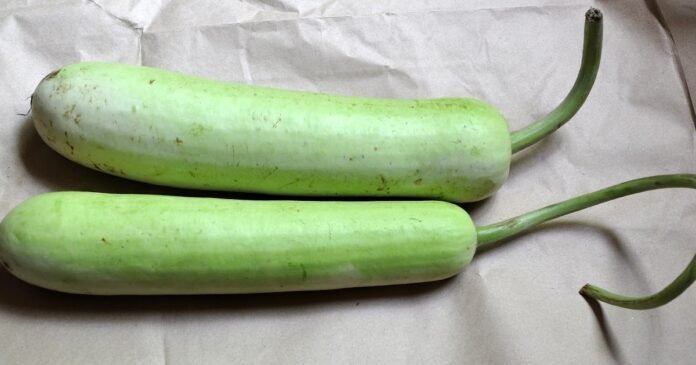Identifying organic bottle gourds, commonly known as lauki, can be crucial for those looking to prioritize health and environmental sustainability in their diet. While conventional produce may be more readily available, opting for organic bottle gourds offers several benefits, both for individuals and the planet.
One of the most reliable ways to identify an organic bottle gourd is by looking for certification labels. Organic certification ensures that the produce has been grown and processed according to strict organic standards, free from synthetic pesticides, fertilizers, and genetically modified organisms (GMOs). Look for certification labels from recognized organic certifying agencies to ensure the authenticity of the product.
In addition to certification labels, organic bottle gourds often have distinct characteristics that differentiate them from conventional produce. These may include a more vibrant color, firmer texture, and a fresher appearance. Organic bottle gourds are typically grown in nutrient-rich soil without the use of synthetic chemicals, resulting in healthier and more robust plants.
When purchasing bottle gourds from local farmers’ markets or organic grocery stores, don’t hesitate to ask the seller about their growing practices. Farmers who prioritize organic farming methods are usually proud to share information about their cultivation techniques and may even offer insights into the benefits of organic produce.
Another way to identify organic bottle gourds is by considering their price. Organic produce often comes at a slightly higher cost compared to conventional counterparts due to the labor-intensive nature of organic farming and the higher quality of ingredients used. While the price may be a deterrent for some, the long-term health benefits of consuming organic produce outweigh the upfront cost.
Furthermore, supporting organic farming practices contributes to environmental sustainability by reducing the use of synthetic chemicals and promoting biodiversity in agricultural landscapes. Organic farming methods prioritize soil health, water conservation, and ecological balance, resulting in healthier ecosystems and reduced environmental impact.
In addition to certification labels and visual cues, consumers can also rely on the reputation and sourcing practices of the seller or retailer. Establishing a relationship with trusted local farmers or suppliers who prioritize organic farming practices can provide peace of mind and assurance of product authenticity. By building rapport with these sources, consumers can gain insight into the journey of their food from farm to table and feel confident in their purchase decisions.
Moreover, consumers can educate themselves about the specific characteristics of organic bottle gourds to aid in identification. Organic produce often exhibits a more robust flavor profile and superior nutritional content compared to conventionally grown counterparts. By familiarizing themselves with the taste, texture, and appearance of organic bottle gourds, consumers can make informed choices when selecting produce at the market.
It’s also essential to consider the broader implications of choosing organic bottle gourds beyond personal health benefits. Organic farming practices prioritize soil health and biodiversity, promoting long-term sustainability in agriculture. By supporting organic agriculture, consumers contribute to the preservation of natural ecosystems, reduced pesticide exposure for farmworkers, and protection of wildlife habitats.
Furthermore, opting for organic bottle gourds aligns with broader efforts to mitigate climate change and reduce carbon emissions. Organic farming practices emphasize carbon sequestration in soils, helping to offset greenhouse gas emissions and combatting climate change. By choosing organic produce, consumers can play a role in fostering a more sustainable food system and mitigating the environmental impact of agriculture.
Incorporating organic bottle gourds into one’s diet can also inspire a broader shift towards conscious consumption and mindful living. By prioritizing organic and locally sourced foods, consumers can cultivate a deeper connection to the food they eat and the ecosystems that sustain them. This shift towards mindful consumption can extend beyond the dinner table to encompass other aspects of daily life, such as waste reduction, energy conservation, and community engagement.
Additionally, choosing organic bottle gourds supports small-scale farmers and promotes economic resilience in local communities. By purchasing directly from farmers or supporting local markets that prioritize organic produce, consumers can empower small-scale growers and contribute to the vibrancy of rural economies. This direct support enables farmers to continue practicing sustainable agriculture and preserves agricultural traditions for future generations.

